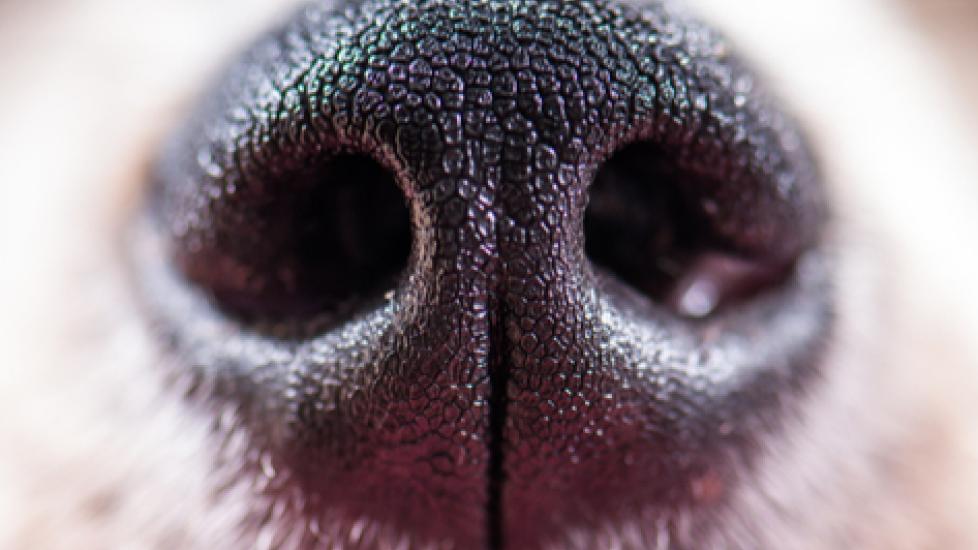Why Are Dog Noses Wet?
Ever been bumped by your dog’s wet, cold nose and wondered why it always seem to be that way? Or have you felt that your dog’s nose was warm and dry and debated whether that meant they were getting sick?
Here’s everything you need to know about your dog’s nose, from why it’s usually cold and wet to what you should do if it seems dry or warm.
Is It Normal for a Dog’s Nose to Be Wet?
When up and about, dogs will generally have very wet and cool noses. But when they’re sleeping, it is certainly also normal for them to be warm and dry.
And then there is often variation amongst individual dogs, so while one dog may always have a wet, cold nose, another dog may have one that is usually much drier or warmer.
That’s why it’s important to learn what is normal for each pup in your household.
Vet Recommended Health Support
Why Is a Dog’s Nose Wet?
There are a number of reasons that have been proposed for why a dog’s nose is wet, and it may be that science doesn’t yet know the exact answer.
However, we do know there are glands inside a dog’s nose that secrete a thin, watery material that likely contributes to the moisture, much like the fluids found inside our own noses. This liquid wicks out to the nose surface, evaporates, and then helps to cool the dog.
The nose pad and the footpads are the only places dogs are able to sweat, so this cooling mechanism (along with panting) can be important to them, especially in hot weather. Additionally, our canine friends tend to lick their noses frequently, which—much like humans licking their lips—tends to keep their noses moist.
This moisture may also help humidify the air as it moves into a dog’s nasal cavity, which keeps it from drying out their respiratory tract and may even help prevent respiratory infections.
Some people speculate that the moisture helps dogs retain scents, thus improving their sense of smell.
What Does It Mean if a Dog’s Nose Is Dry?
A dry nose may be perfectly normal, and some dogs tend to have wetter noses than others. For example, very often, sleeping dogs will have warm, dry noses because they aren’t awake to lick them.
Since the amount of nose moisture will vary with humidity and throughout the day, a dog that just woke up from a nap at 2 p.m. with a dry nose may have a moist nose after a game of ball at 7 p.m. So, in most cases, it is not automatically a sign of illness if your dog has a dry nose.
Occasionally, a dry nose can indicate dehydration or fever, but this is usually not the case. If your dog is acting sick AND has a dry nose, this may be cause for concern, and you should call your vet.
Should You Take Your Dog to the Vet If Their Nose Is Dry?
If your dog has a dry nose but is feeling well and acting normal, it should be safe to monitor things for a bit. Offer your dog some water, try taking them to a humid environment (sitting in the bathroom with your dog after running the shower is great for this), and monitor them for any other possible symptoms. Chances are good that things will go back to normal pretty quickly without a trip to the veterinary hospital.
However, if your dog seems lethargic or isn’t eating well, or you sense that your dog doesn’t feel well, schedule a vet visit and mention to the veterinarian that you’ve noticed that your dog’s nose is unusually dry. By the same token, if your dog’s nose is crusty, raw, or has bleeding spots, you should also schedule an appointment.
Wet noses and dogs just seem to go together, whether they’re prodding us for treats during the day or nudging us to get up for a walk at night. Even if your dog tends to have a drier-than-average nose, it’s likely just normal for them.
Read more: 8 Dog Nose Facts You Probably Didn't Know
